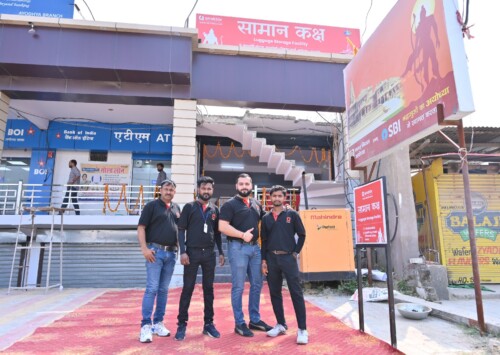Supreme Court ruling on Governors’ role restores Constitutional balance
Top courts strengthens Article 200 in setback to activist Governors
On April 8, 2025, the Supreme Court ruled Tamil Nadu Governor RN Ravi’s refusal to grant assent to 10 state bills as illegal and unconstitutional. The decision followed a long standoff with the DMK-led state government. Between November 2020 and April 2023, the Assembly passed 13 bills, out of which 10 were withheld or returned by the Governor without explanation. The court’s ruling reinforced the Constitutional roles of the Governor and the state legislature.
In a clear and resounding verdict, the Supreme Court of India deemed Tamil Nadu Governor RN Ravi’s refusal to grant assent to the state’s 10 bills as illegal and unconstitutional.
Acting on the writ petition filed by the State of Tamil Nadu regarding the Governor’s delay in passing the bills, the two-member bench of Justice JB Pardiwala and Justice R Mahadevan, ruled that the Governor could not reserve a bill for the President’s consideration after denying assent the first time, and the bill again clearing the assembly.
Even though the Article 200 of the Constitution does not prescribe a time limit for the Governor to withhold assent if the bill is passed twice by the state legislature, the top court has broken the deadlock on this ambiguity. According to the Supreme Court, this ambiguity cannot be mistaken for indefinite delays or misuse of discretionary powers.
The Court has also set clear timelines for Governors to act on state bills. It said that if a Governor chooses to give assent or reserve the bill as per the advice of the Council of Ministers, it must be done within one month. If the Governor withholds assent against the Council’s advice, the bill must be returned with a message within three months. In cases where the Governor decides to reserve the bill for the President against the Council’s advice, this must also be done within three months. Once the bill is passed again by the Assembly after reconsideration, the Governor must provide assent within one month.
The top court maintained that setting a time limit does not alter the procedural aspects of Article 200. Rather, it introduces a structure and accountability, ensuring timely and reasonable legislative processes without disrupting the constitutional framework.
By setting specific timeframes, the Court has reinforced the urgency of legislative actions, ensuring the Governor’s role remains functional and prevents delays caused by obstructive Governors for political reasons.
The Court also did not establish a deemed assent mechanism, where the Governor’s inaction automatically leads to approval. Instead, it allows for justified delays, with the courts stepping in to assess their reasonableness.
Governor not a political player
The court’s verdict is an important benchmark as for the first time, it decisively curbs the misuse of gubernatorial discretion to stall the functioning of elected state legislatures. The ruling reaffirms a fundamental principle, that Governors are constitutional figureheads, not political gatekeepers.
As Anshum Verma, a legal consultant and advocate based in Delhi, points out, this marks a historic shift. For the first time, the Supreme Court has clearly defined that Governors must act per the advice of the Council of Ministers and cannot sit on state bills indefinitely. In doing so, the Court has drawn a firm line between discretion and delay, ensuring the legislative process cannot be held hostage by inaction.

Anshum Verma
“The Supreme Court has made it crystal clear, Governors cannot just sit on bills indefinitely. There is no such thing as an ‘absolute veto’ or a ‘pocket veto’ under Article 200. In the State of Tamil Nadu vs. Governor of Tamil Nadu case, the Court firmly stated that governors must act on the advice of the Council of Ministers. They are not political gatekeepers, nor are they there to introduce ceremonial delays in the legislative process. In fact, the only situation where a Governor can withhold assent is if the bill has materially changed after being reconsidered by the state assembly. That is it,” Verma tells Media India Group.
Also Read: MPs call for swift justice in acid attack cases
The top court’s ruling is important as in recent years, several non-BJP-ruled states have found themselves locked in tussles with their Governors, accusing them of stalling or blocking key legislation. One of the most striking examples is Kerala, where Governor Arif Mohammed Khan has delayed action on eight bills, some of which have been waiting for assent for up to 23 months.
The tension has now reached boiling point in Kerala, where the government has challenged a High Court order that dismissed its 2022 petition accusing Khan of arbitrarily stalling key legislation.
Senior advocate K K Venugopal, appearing for the Kerala Government in the Supreme Court, didn’t mince words. “Three of these bills were first introduced as ordinances, promulgated by the Governor himself. And yet, he has been sitting on them for nearly three years. That’s not delay, it is Constitutional paralysis,” Venugopal argued.
Kerala has now urged the Chief Justice-led bench to assign its pending writ petition to the same bench headed by Justice J B Pardiwala, which recently delivered Tamil Nadu verdict.
West Bengal, too, has found itself in a similar deadlock. In July 2024, the state moved the Supreme Court, accusing Governor CV Ananda Bose of withholding assent to eight bills without offering any explanation, a move that violates Article 200 of the Constitution. The Article clearly outlines the Governor’s duty, once a bill is passed by the legislature, it must be either approved, returned, or sent to the President. Nowhere does it allow indefinite inaction.
Also Read: India’s Immigration Act sparks controversy over liberty and security
Since the last hearing on July 26, 2024, when notices were issued to the Union Home Ministry and the Governor’s Secretariat, the case has remained in limbo. As per the Supreme Court’s website, the next hearing is scheduled for April 21.
This is not an isolated trend. Just last year, Punjab faced a similar impasse. The then-Governor Banwarilal Purohit refused to act on four bills passed during a special Assembly session, arguing the session itself was invalid. The Supreme Court swiftly struck down that claim, declaring there was “no valid constitutional basis” for the Governor’s refusal. In a strong rebuke, the Court ruled that the Governor is a symbolic head and cannot withhold action on bills duly passed by the legislature.
Amidst growing constitutional standoffs, these judgments mark a significant shift by clearly defining the boundaries and limitations of discretion. They reinforce that the Governor is a titular head, akin to the President at the Centre, and must act in cooperation with the elected government.
“The verdict makes it clear, the Governor is not an autonomous authority. Under Articles 163 and 200, they must act on the advice of the Council of Ministers. Like the President at the Centre, the Governor is a ceremonial head, not a political player. By making the Governor’s actions on bills time-bound, the Court has effectively curbed the misuse of discretion to stall laws passed by elected legislatures,” adds Verma.
Delayed decision-making impacting people’s lives
However in India, in recent years, political developments in India seem to be met with a growing sense of indifference. Take the arrest of Delhi Chief Minister Arvind Kejriwal in the LiquorGate scam, once a story that would have ignited public outrage, it now barely stirred reactions beyond muted conversations and passive social media posts.
The same was seen back in 2016 when the Governor’s controversial move in Arunachal Pradesh led to the dismissal of the Nabam Tuki-led Congress government, a decision later reversed by the Supreme Court. Yet, public discourse remained largely silent.
Even when chaos unfolded in Parliament during the winter session, with both the Lok Sabha and Rajya Sabha functioning for just two hours amid daily disruptions, public response was short-lived. A few heated tweets, some fleeting headlines, and then silence, quickly replaced by the next controversy.
It seems the nation is watching, but no longer reacting, politics has become background noise for many.
However, the clash between Governor and the MK Stalin-led DMK government brings up an important question about how these political delays or power struggles affect ordinary people.
Dr. Neela Ganguly, head of the Political Science programme at Chennai’s Guru Nanak College, points out that ongoing tensions between the Governor and the state government have, in fact, had a serious impact on the lives of citizens. When key decisions are delayed, it is the common people who feel the effects the most.
Also Read: 70 pc waste pickers in Delhi faced severe income loss: PPC-PIC report

Neela Ganguly
“You know, this constant tug-of-war between the Governor and the State Government has done more harm than good for ordinary people, no matter which side you are on. Take NEET, for instance. Tamil Nadu has been trying to scrap it for almost five years now, but nothing has moved. Both the State and Centre have been locked in debate while students regardless of their family income are forced into expensive private medical education. Then there is the New Education Policy. Experts have debated it endlessly, but full implementation still feels far off. For people in Tamil Nadu, where communities are diverse, this delay just adds more confusion,” Ganguly tells Media India Group.
Meanwhile, in Delhi, the ongoing differences between Lieutenant Governor V K Saxena and the then Chief Minister Arvind Kejriwal highlighted how political dynamics can slow down key public initiatives. Saxena accused Kejriwal of blocking efforts to clean the Yamuna, suggesting it was to prevent him from receiving credit.
Leading up to the Delhi elections, AAP leader Satyendar Jain claimed his arrest was aimed at stalling flagship projects like the Mohalla Clinics and the Yamuna clean-up.
Interestingly, just days before the formation of a BJP-led government in the city, a large-scale Yamuna cleaning drive was launched.
This situation reflects how political deadlocks can delay action on crucial civic issues. The Yamuna, an essential waterway and part of Delhi’s cultural life, especially during festivals like Chhath Puja, continues to suffer from pollution, even as clean-up efforts get caught in a web of political timing and decision-making.
Also Read: Five years on, Delhi riots victims continue to await justice
“Honestly, when the Governor holds back assent on key bills, it feels political, especially since the State is not ruled by the party in power at the Centre. This kind of interference leaves citizens in limbo. Policies keep changing, governments come and go, and people end up living day to day, with no clear long-term path. They work hard, but who knows if their savings or plans will hold up in this back-and-forth?” adds Ganguly.
Hence even though people do not relate to the political functioning of the political parties, and standoffs between central and the state government. These delays can affect the functioning of the country as a whole.
According to Verma, a lot of welfare and social justice schemes are delayed due to this standoff.
“You see, a lot of state bills aim to expand welfare schemes, improve healthcare or education, or provide aid and reservations. But when governors delay giving their consent, even briefly, it can hold everything up. Take Punjab, for example. Farmers there were left waiting for help during planting season because the bill on power subsidies was delayed. That pause had real consequences,” adds Verma.
Also Read: Month after Central rule imposition, Manipur continues to boil
Experts hope for the change
According to experts, there is hope that the recent judgment could mark a turning point in the relationship between state and central governments. They believe it may lead to clearer boundaries, better cooperation, and fewer political roadblocks, especially when it comes to decisions that directly impact citizens’ lives.
“If similar issues arise with governors in other states, this ruling could set a useful precedent. It sets a legal benchmark for future Centre-State disputes, especially in the context of Articles 200, 163, and even 356 concerning President’s Rule,” says Verma.
“First, it could push for the swift passage of long-pending bills, with reviews done where needed. Second, it may help foster a more cordial relationship between state and central governments. And third, the judiciary’s role in reviewing key bills might actually bring out the core intentions of both governments ideally leading to more balanced, citizen-focussed governance,” says Ganguly.










